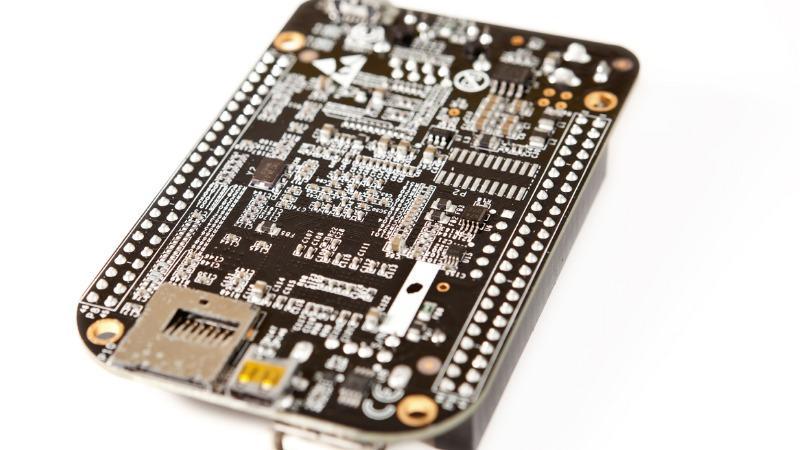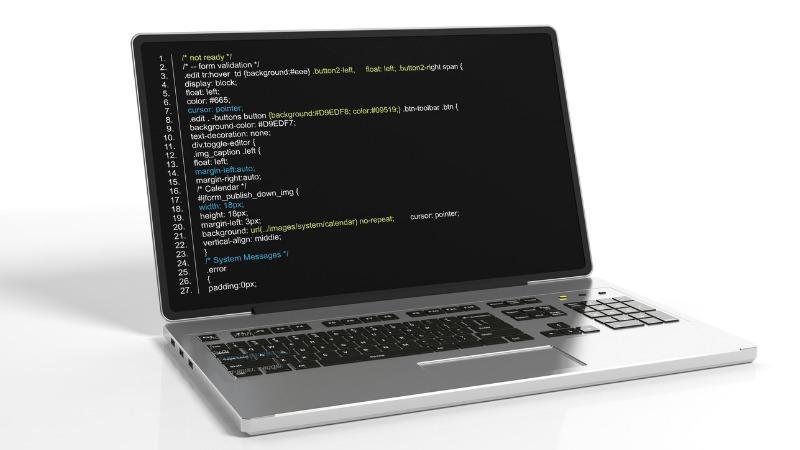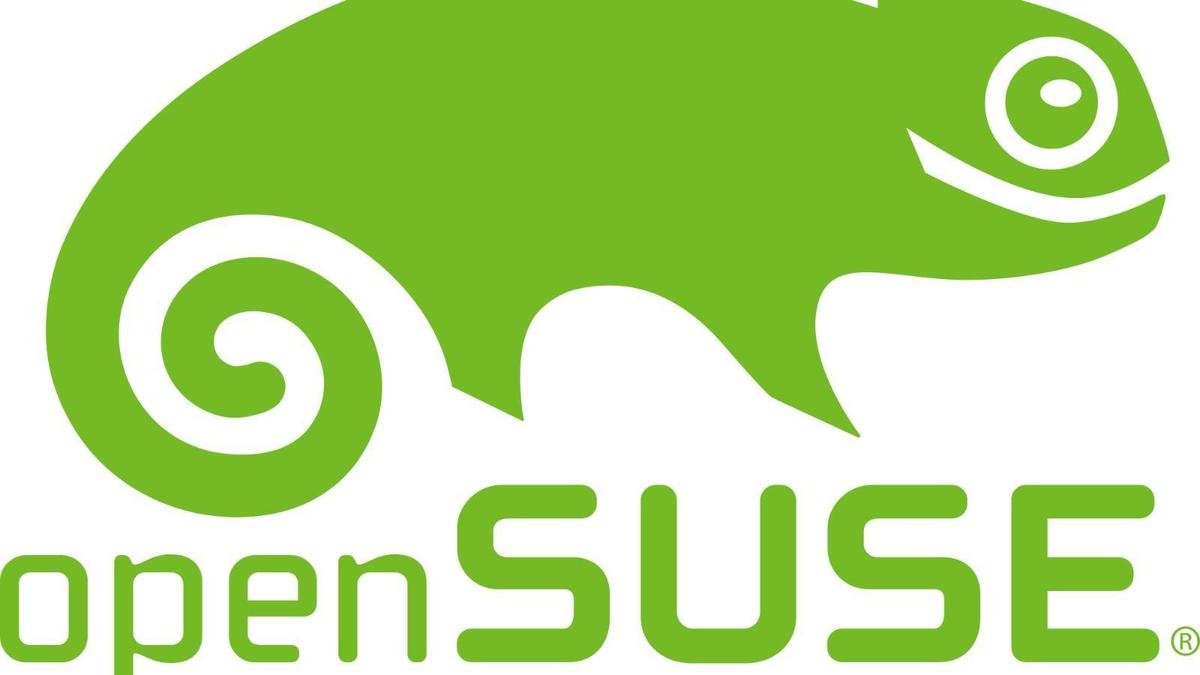How to Do a System Cleanup on Windows 10
Windows 10 alternatives: Best free, open source operating systems
By Computerworld UK staff ,
Windows 10 is a very popular operating system, however, it may not be for everyone. Whatever the reason for your change, there are a number of great alternatives to try out.
The Windows 10 update has faced some negative feedback, with consumer magazine, Which? reporting in March 2018 that many users complained about functionality problems, including slow PCs or even outright failure.
So why not opt for a free, open source Windows 10 alternative?
Switching to an open source OS could involve a learning curve, but the community, customisation and lack of cost should be enough to make up for it.
Read on for our favourite free, open source browsers.
Read next: Windows 10 for business: Pros and cons for enterprise users

iStock
ChaletOS
ChaletOSis a free and open-source Linux distribution based on Xubuntu. It is built with a similar design to Windows, which shows a simple and intuitive desktop interface.
It is good alternative for Windows users that may want to try a Linux distro, offering Xfce desktop environment with the opportunity to customise the desktop.
ChaletOS includes various pre-installed applications and is a good option for older PCs that may not have enough memory. The latest version, which was released in April 2016, is what provides users with the opportunity to modernise old desktop servers.
Key features: LTS Support, GTK2 and GTK3 engine support, Style change, Start point application, Serbia.

iStock
SteamOS
SteamOS is a Debian-based Linux OS operating system built by Valve Corporation. Initially released in December 2013, SteamOS was primarily designed to allow video games to be played away from PCs.
It supports Windows, Mac and Linux computers and enables all games to be streamed to StreamOS computers. Users can also access the GNOME desktop environment to perform other tasks aside from playing games.
SteamOS also supports Nvidia, Intel and AMD graphics processors, with optional ability to access film and music from the Steam store.

iStock
Debian
Debianis a free Unix-like open-source operating system, which stems from the Debian Project launched in 1993 by Ian Murdock.
It is one of the first operating systems based on the Linux and FreeBSD kernel. The stable version 1.1, released in June 1996, is known as the most popular edition for PCs and network servers.
Debian provides access to online repositories of over 51,000 packages, all of which include free software. It is completely developed and distributed following the principles of the GNU Project.
Key features: LibreOffice, Firefox, K3b disc burner, VLC media player, GIMP image editor, Evince document viewer and Evolution mail.

iStock
Ubuntu
Initially released in 2004, Ubuntu is Debian-based and part of the open source Linux family. It can be run on desktop and mobile, or used to power IoT devices. Like all open source software, its evolution has depended on the voluntary work of a global community of developers.
Last year, Ubuntu switched from running Unity as its default user interface in favour of GNOME, which can be run on smartphones, tablets and PCs. The desktop version of the operating system currently powers millions of laptops and PCs around the world.
Anything not already pre-installed in the operating system, including applications and games, are available on the Ubuntu Software Centre.
In terms of security, this operating system is one of the best around, with a built-in firewall and virus protection software. A lightweight version called 'Lubuntu' is also available.
Key features: Pre-installed with popular software such as LibreOffice and Firefox, Thunderbird, built-in Ubuntu Software Centre, F-spot, an image editor, an instant messaging client called Empathy, and Ubuntu Make (developer tools centre)

iStock
Fedora
Red Hat's Linux-based, open source Fedora operating system has an estimated 1.2 million users. It's primarily aimed at developers of varying levels (from hobbyists up to IT pros) so offers features not always necessary for the average user. For example, its sleek GNOME 3 desktop environment is extremely minimal to reduce the chances for distraction from the task of coding.
After its 2003 release, Fedora has regularly updated its OS, with a new version being released every six months. The latest version of Fedora was released in May 2018, making Fedora 28 the latest version.
The open source toolbox features a range of open source tools that will come in handy on a day-to-day basis.
Key features:GNOME 3.26, LibreOffice, Todo application, (file browser) Nautilus, Linux Vendor Firmware Service and Google Drive integration.

iStock
Solus
Solusis an open source, Linux-based desktop operating system aimed at home computing uses. Released in just 2012, Solus is a relatively new OS.
The software comes pre-installed with features such as the Mozilla Firefox web browser, Mozilla Thunderbird email, digital content streaming device, GNOME MPV. As well as a range of open source creativity suites such as animation software Synfig Studio, music production apps Musescore or Mixxx and graphic design with GIMP. A plethora of additional apps are also conveniently located in the Software Centre.
Key features: LibreOffice Suite, Firefox, PlayOnLinux, Budgie desktop environment, Thunderbird, XChat, OpenShot Video Editor, Transmission and VLC.

iStock
Linux Mint
Linux Mintis a popular, open source Linux operating system based on Debian and Ubuntu OS used by millions of people. While it is based on Ubuntu, this operating system works much more like Windows or Mac OS, hosting a familiar interface.
The beta release of the most recent Linux Mint 19 "Tara" Xfce operating system took place in June, 2018. This is a long term support release which will be supported until 2023.
Key features:Adobe Flash, Java, Cinnamon desktop environment, LibreOffice, Firefox, Thunderbird, HexChat, Pidgin, Transmission, VLC media player, GIMP.

iStock
ReactOS
ReactOSis a free and community-based open source, lightweight (500MB HDD and 96MB RAM) operating system boasting over six million downloads and counting across 100 countries. Initially developed as a Windows 95 clone project in 1996, ReactOS was later released in 1998.
ReactOS has been built from scratch but is designed to look and feel like Windows and be able to run Windows software, so should be one to consider for those wanting a clear Windows OS alternative.
For anyone concerned about the data tracking activity of Windows, privacy is written into the source code of this OS.
However, ReactOS is still in relative infancy so is best suited for someone with open source experience or someone wanting a totally customisable user interface.

iStock
Xubuntu
Xubuntuis a Unix-based open source operating system that runs the lightweight and configurable XFCE desktop environment, rather than Ubuntu's Unity environment. While the interface is relatively stripped back, it's still a full-featured OS competing well with others listed.
This OS is ideal for reusing that ageing Windows XP machine.
The most recent version, Xubuntu 18.10, was released in October 2018 with Xfce components. The standard release of Xubuntu 19.04 is scheduled for 18 April 2019.
Key features:The operating system comes preinstalled with applications including a web browser, a mail client, word processor, spreadsheet editor, applications to handle your media like music, videos and photos. For more applications, games or tools, you simply have to search the Ubuntu Software Centre.

iStock
TrueOS
TrueOSis a Unix-like operating system built on the latest releases of FreeBSD, the free and open-source Unix-like operating system.
The OS claims to offer increased security over competitors, with advanced security features such as PersonaCrypt and GELI disk level encryption, to keep your most important data safe.
The SysAdm remote management tool provides a way to manage your Server, Desktop or Cloud-based systems. You can remotely control all aspects of your machine, including management of software, updates, boot environments, users and backups.
Key features:Lumina/Cinnamon/GNOME/MATE desktop environment, able to run Linux software, automatically configured hardware, AppCafe, Virus-free, Laptop support, PersonaCrypt, LibreSSL, encrypted backups, Nvidia and Intel drivers

iStock
Chrome OS
Google's Chrome OS is based on the Linux kernel and uses the Google Chrome web browser. It's a cloud-based browser that primarily hosts web applications.
The operating system is partially developed under the open source Chromium OS project. But while developers can modify the code from Chromium OS, Chrome OS code is only supported by Google.
A huge variety of apps are offered through the Chrome Web Store. However, it's only free on Chrome hardware such as a Chromebook or Nexus device.
Key features:Cloud-based file management, integrated media player, virtual desktop access, Aura window manager, Google cloud print, Chrome Apps, support for selected Android apps and enhanced security

iStock
FreeDOS
FreeDOSis a free open source tool that provides an environment like the DOS operating system. It's primarily geared towards the ability to play classic DOS games, run legacy business software, or develop embedded systems that may run on DOS (rather than more modern alternatives).
Set up should be easy with files being loaded from a USB or disk drive. It allows you to view and edit FreeDOS' source codes with its programs being distributed under the General Public Licence (GNU).
Like MacOS and Windows, FreeDOS allows you to share files from any Linux device and location.
Key features:7ZIP file archive, FAT32 file support, FDAV (antivirus scanner), HTML viewer, a built in media player and ARACHNE graphic web browser and email client

iStock
FreeBSD
Released in 1993, FreeBSD is a functional open source operating system and supports most web browsers, office suites, email readers and network servers. It's derived from BSD, a particular strain of UNIX developed at the University of California, Berkeley. According to its site, the aim of FreeBSD is to provide a stable operating system that may be used for any purpose.
FreeBSD is free to use and can be installed from a CD-ROM or over a network using FTP or NFS.
The latest version of FreeBSD is 12.0 and was released in December 2018. It still remains under active development but includes support for Microsoft Hyper V as well as enhanced networking on the Amazon EC2 platform.

Haiku
Haiku is an open source operating system targeted towards personal computing that is currently still being developed. It's based on original BeOS software and is designed to be fast, efficient and easy to use. The operating system's entirely modular design means that different components of the OS can be developed at the same time. The OS is still in the Alpha stage, but can currently be used for daily tasks including browsing the web, writing and reading e-mails, or listening to music and watching videos.

Elementary OS
Elementary OSpitches itself as a fast replacement for both Mac OS and Windows. Based on Linux, the OS claims to be secure and doesn't collect personal data.
The OS is aesthetically pleasing and boasts an extensive app store, offering plenty of open source apps from indie developers. The OS puts a lot of emphasis on supporting these types of developers, offering the option to users to make donations in return for using these products.
The bare bones OS comes pre-installed with essential apps for everyday use including files, photos and music apps.

© openSUSE
openSUSE
openSUSEis a Linux-based project which comprises a server environment and a range of other open source software tools primarily aimed at developers and system administrators.
openSUSE Leap 15.0 is the current version, while Tumbleweed is a rolling release version which is regularly updated with new versions. Other tools associated with openSUSE include YaST, Open Build Service, openQA and Snapper.
Copyright © 2019 IDG Communications, Inc.
How to Do a System Cleanup on Windows 10
Source: https://www.computerworld.com/article/3412309/windows-10-alternatives-best-free-open-source-operating-systems.html
0 Response to "How to Do a System Cleanup on Windows 10"
Post a Comment